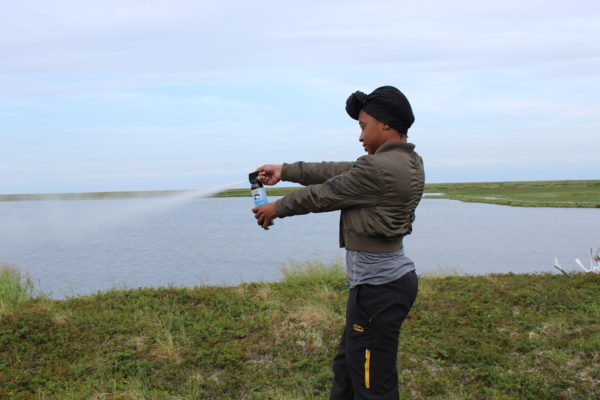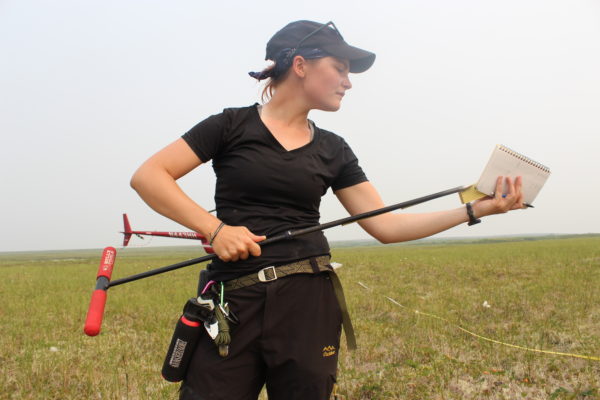From the muddy wetlands of the Hudson River in New York to the permafrost-fed streams of the Siberian Arctic, my path to graduate school–has quite literally–included trekking through mud up to my knees. However, it is the biogeochemistry of the muddy water that I find most interesting and seek to study in the future.
As an undergraduate at the College of the Holy Cross in Worcester, Massachusetts, I explored a variety of ecological fields ranging from the evolutionary divergence of an endemic beetle population in Arizona to the effects of sea level rise on the Hudson River’s freshwater wetlands. However, it was the opportunity to be a member of the Polaris team during the 2013 and 2014 expeditions that largely influenced my decision to pursue graduate school in Arctic system science.
With the opportunity to work with a diverse group of scientists, I was most drawn to answering questions about how permafrost thaw impacts microbial metabolism in Arctic streams and rivers, how a changing Arctic landscape will shift carbon sinks and sources to our atmosphere, and how major burning alters larch forest carbon pools and carbon dioxide emissions. Learning about these pivotal topics not only sparked my interest in studying how Arctic warming will impact local and global ecosystems, but has prepared me to pursue advanced graduate studies in the Arctic as a PhD student at the University of Texas at Austin, Marine Science Institute.
Something that I’ve learned about trekking around the Siberian Arctic is that often, your own mud-filled path in thawed permafrost soil serves as a necessary foot print for others to follow.
As previous students and mentors have done for me, I wish continue to lead a mud-filled path–to excite undergraduate students about studying the Arctic and encourage them to purse graduate school in not only fields related to Arctic warming, but any field in environmental science. Just before the Thanksgiving Holiday, I had the opportunity to revisit Holy Cross to give a seminar to the Freshwater Ecology Class, taught by Prof. William Sobczak, a mentor and initial PI of the Polaris Project. While speaking to students, I shared my experiences with the Polaris Project that influenced my decision to pursue graduate studies. When the end of the seminar turned into an informal discussion, I found myself also giving advice and connecting with students who were eager to learn more about the Arctic.
As a first year graduate student and Polaris alumni, I am passionate about studying the Arctic through research–but feel it is equally rewarding to excite and encourage students to pursue this field in hope they too seek to follow this mud-filled path.

Photo taken by Chris Linder Photography



